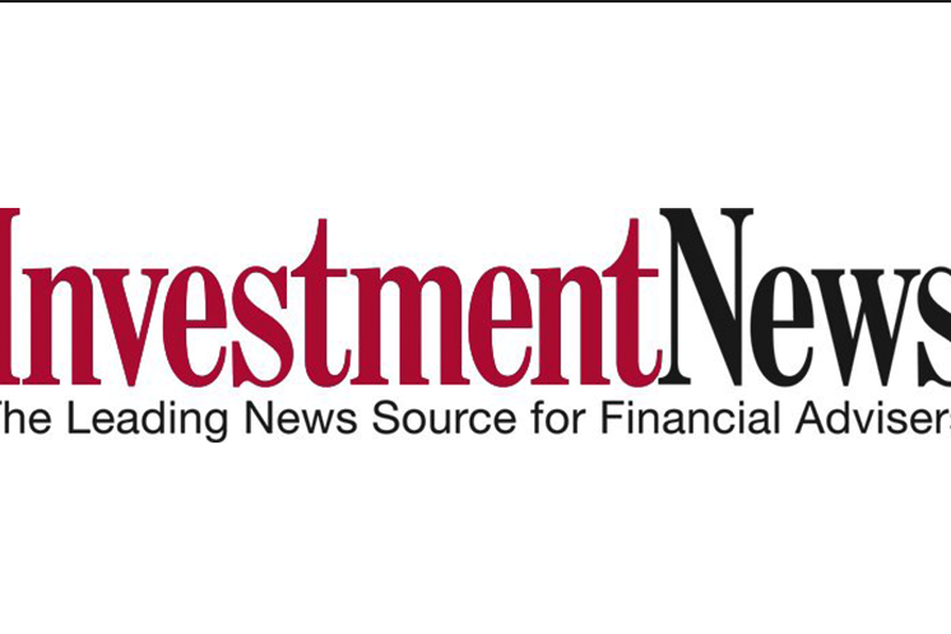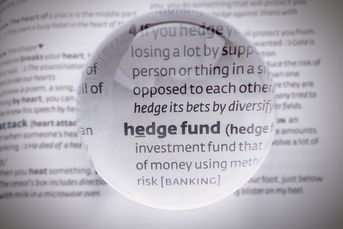Hedge funds are using ETFs despite stigma

Hedge fund managers are the third-biggest institutional users of exchange-traded funds and exchange-traded products, but they are reluctant to talk about it.
Pension fund, endowment and foundation clients won’t be happy if the hedge fund managers they hire for their exceptional investment skills rely too much on lower-cost index-based products such as ETFs and ETPs.
“Investors in hedge funds are paying big fees for active management equity selection. If a long/short manager goes long individual equities and only shorts ETFs and [indexes], it is a terrible deal for investors [because] fees should be a lot lower,” Jim Vos, chief executive, head of research and principal at hedge fund consultant Aksia LLC, wrote in an e-mail.
Hedge fund managers typically charge 2% of assets for management and 20% for performance.
“There is a stigma to using ETFs for many hedge fund managers,” said Daniel Gamba, managing director and head of the America iShares institutional business at BlackRock Inc.
“Hedge fund managers who don’t use ETFs say they don’t because they are paid to pick securities. Others that do use them have trouble telling clients they use ETFs but, on the other hand, have no trouble telling them about the complicated futures, options and other derivatives they also use as investment tools,” Mr. Gamba said.
BlackRock is the industry’s largest ETF provider, with $483.5 billion as of Jan. 31, according to data from The ETF Industry Association.
Many industry sources agree with Stephen L. Nesbitt, who wrote in an e-mail: “ETFs are ubiquitous in hedge fund portfolios, [used] mostly as hedging instruments.”
He is chief executive of alternative investment consultant Cliffwater LLC.
ACTIVE-ETF USERS
A number of large, well-known hedge fund managers use active ETFs, according to their Dec. 31 13-F filings with the Securities and Exchange Commission. They in-clude Bridgewater Associates LP, Eton Park Capital Management LP, Lone Pine Capital LLC, Millennium Management LLC, Oak Hill Investment Management LP and Paulson & Co. Inc.
State Street Global Advisors’ SPDR Gold Shares, which totaled $63.5 billion as of Dec. 31, is one of the industry’s most popular ETFs, with 145 hedge funds invested as of that date, according to 13-F filings.
Paulson & Co. was the largest hedge fund holder of SPDR Gold as of Dec. 31, with 17.3 million shares, according to the firm’s 13-F filing.
Although ETF use might be widespread among hedge funds, the dollar amounts invested using these instruments are fairly small — an estimated gross $76 billion as of Dec. 31 — compared with the approximately $1 trillion of single-stock holdings held by hedge fund managers, according to The Goldman Sachs Group Inc.’s analysis of 13-F and short-interest filings.
About 17% of hedge fund short positions and 4% of long positions were made through ETFs, according to researchers from Goldman’s global economics, commodities and strategy research unit. The data are from the company’s Feb. 21 edition of Hedge Fund Trend Monitor.
The growth of hedge fund investment in SPDR Gold and other ETFs is indicative of changes in the way these active managers use ETFs as portfolio management tools, said Kevin Quigg, global head of SPDR ETF strategy and consulting at State Street Global Advisors.
MOST COMMON USES
Hedge fund managers most commonly use ETFs as a traditional hedge, most often to short sectors, but also to get long exposure, he said.
ETFs also are used by hedge fund managers to invest quickly in a particular opportunity, using ETFs as a placeholder while individual securities are selected; invest in markets or sectors where the manager lacks infrastructure or specific knowledge; and arbitrage of an individual security.
SSgA is the industry’s second-largest ETF provider, with $287.6 billion as of Jan. 31, according to The ETF Industry Association.
Hedge funds have used ETFs since the mid-1990s, but only in the past few years have sector ETFs become large enough for hedge funds to feel comfortable about their ability to preserve anonymity while investing in them, Mr. Quigg said.
Mark Bamber, managing director and head of Deutsche Bank AG’s Delta One trading unit, overseeing index and program trading, including ETFs, agrees, noting that hedge fund managers use ETFs to “express their technical macro views.”
When “correlations between individual securities are high, or volatility is spiking, hedge fund managers tend to use ETFs to take broad-brush exposures on sectors,” he said.
Because correlations and volatility can be fleeting, the liquid nature of ETFs makes them attractive, as hedge fund portfolio managers generally hold ETFs for a shorter time than other institutional users and turn them over much more frequently, Mr. Bamber said.
Other hedge fund managers are using ETFs as “building blocks, beta tools to get exposures” on the long and short side to sectors or regions where liquidity is constrained and buying individual securities is difficult. For both reasons, iShares’ hottest ETF sectors are high-yield bonds, emerging markets and credit markets.
High yield in particular has been one of BlackRock’s fastest-growing markets, with average daily trading volume of its iShares iBoxx High Yield Corporate Bond Fund increasing to $150 million in the second half last year, from about an average of $90 million in the first half.
In January, average daily trading volume rose to $200 million per day, Mr. Gamba said.
Year-to-date net inflows into the high-yield ETF totaled $2.7 billion as of Feb. 22, compared with $3.5 billion during all of last year.
Fund-of-hedge-funds managers and consultants generally are comfortable with the use of ETFs by hedge fund managers, especially global macro and systematic-trading managers whose strategies focus on top-down investment in sectors and regions, rather than on individual security selection.
They are concerned, however, when more fundamentally oriented hedge fund managers rely too much on ETFs for shorting in portfolios.
“We pay attention to ETF usage because generally, we want active positions on both the long and short side of a manager’s portfolio,” Greg T. Fedorinchik, senior managing director and head of global client relationship team at Mesirow Advanced Strategies Inc., wrote in an e-mail.
Mesirow manages about $14.3 billion in funds of hedge funds.
Christine Williamson is a reporter for sister publication Pensions & Investments.
Learn more about reprints and licensing for this article.





